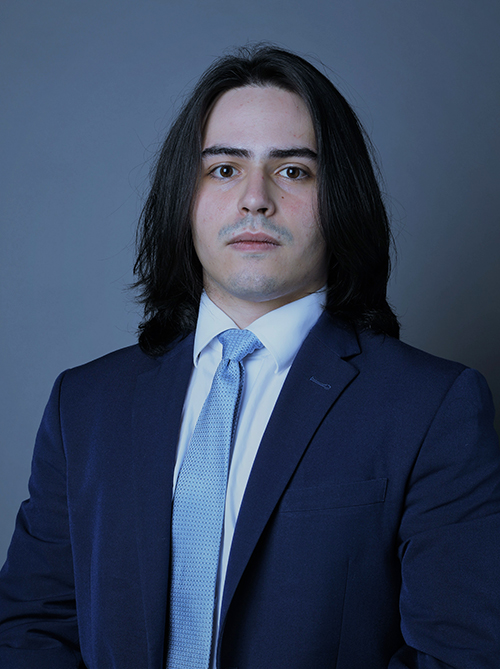From Co-op to Law School, Avery Maudlin Credits Philosophy Major for Defining his Path
By Gina Myers
October 19, 2021
It began with a postcard. Avery Maudlin had been considering attending college in the Northeast, inspired by his mother and two uncles who moved from Puerto Rico to go to school in this part of the country. The Florida native was looking at Philadelphia because his uncles had graduated from Temple, and then one day a postcard arrived that introduced him to Drexel University.
Intrigued by the co-op program and interested in trying something new, Avery decided to apply. He could not anticipate then the impact the University would have on him.

The philosophy major credits his time at Drexel for making him the person he is today. Since arriving on campus as a freshman, Avery says his way of thinking has changed completely, and he has grown professionally, academically and socially, thanks to Drexel’s various offerings and especially to his philosophy courses.
“The more I got into philosophy, I got way more serious about my writing and different kinds of work,” he explains. “I never thought philosophy would let me grow more in tune with myself. I was able to change my entire way of thinking. Back from four years ago to now, it’s completely different paths. I think that is the biggest surprise philosophy has had for me—it was able to change me for the better.”
Avery decided to major in philosophy due to his love of reading and solid background in English and literature. He felt like philosophy would challenge him and offer him the best chance to grow as a thinker and as a person. His philosophy degree will also be helpful when it comes time for him to apply for law school, which he is planning to do.
His favorite classes so far have been PHIL 380 and 381, two literary theory courses taught by Jennifer Yusin, PhD, associate professor of English and director of the women’s and gender studies program. “[Dr. Yusin] is the smartest person I have met. I really loved both classes and the material,” says Avery. “She taught me to make my own theories. Stemming from epistemology and a good foundation in literature, you learn how to make your own way—you read and you make knowledge for yourself.”
He sees this skill—of intaking information and making your own knowledge—as extremely important in the legal field. “You’re considering multiple factors, evaluating a person or situation, putting it into context with whatever is going on, and you're also grabbing from the law and applying the law,” explains Avery. “A lot of it is literature-based. You’re grabbing information from so many different places. With philosophy, you learn how to pull it all together and really make ideas come to fruition.”
Avery also completed three co-ops and is currently a fellow at the Kline & Specter law firm, where he serves as a liaison between incoming clients and attorneys. He is currently working on a mass tort class action case. “My job is to work with the other fellows on this team and to talk with and interview clients—to gather information and to assist them with whatever they need,” he says. “I communicate with the attorneys, letting them know this is how so-and-so is doing, so-and-so needs this, or these papers need to be signed.
“I go back and forth between the clients and the attorneys, and I have learned a lot.”
He was recommended to apply for the position by Teaching Professor of Philosophy Peter Amato, PhD, who is also the director of programs in philosophy. Avery jumped at the opportunity.
“I was on co-op as a legal intern at Beautyman Alvstad when I was offered the job at Kline & Specter. I started working while still on co-op, and I went straight from the two jobs into now the one job with Kline & Specter and classes, but it’s been great.”
While his courses have pushed him academically, and the co-op and job opportunities have made him grow professionally, Avery has also grown significantly socially—to which he credits his involvement with the fraternity Pi Kappa Alpha.
“I joined when I was a freshman. I was extremely awkward. I was not very ambitious, but I was able to surround myself with a really good group of people who all are go-getters, and that sort of shaped me up to where I am now,” says Avery. “I don’t feel like I would have had the great co-ops I had or the great experiences I had if I wasn’t in Pi Kappa Alpha, simply because I wouldn’t have developed this part of myself.”